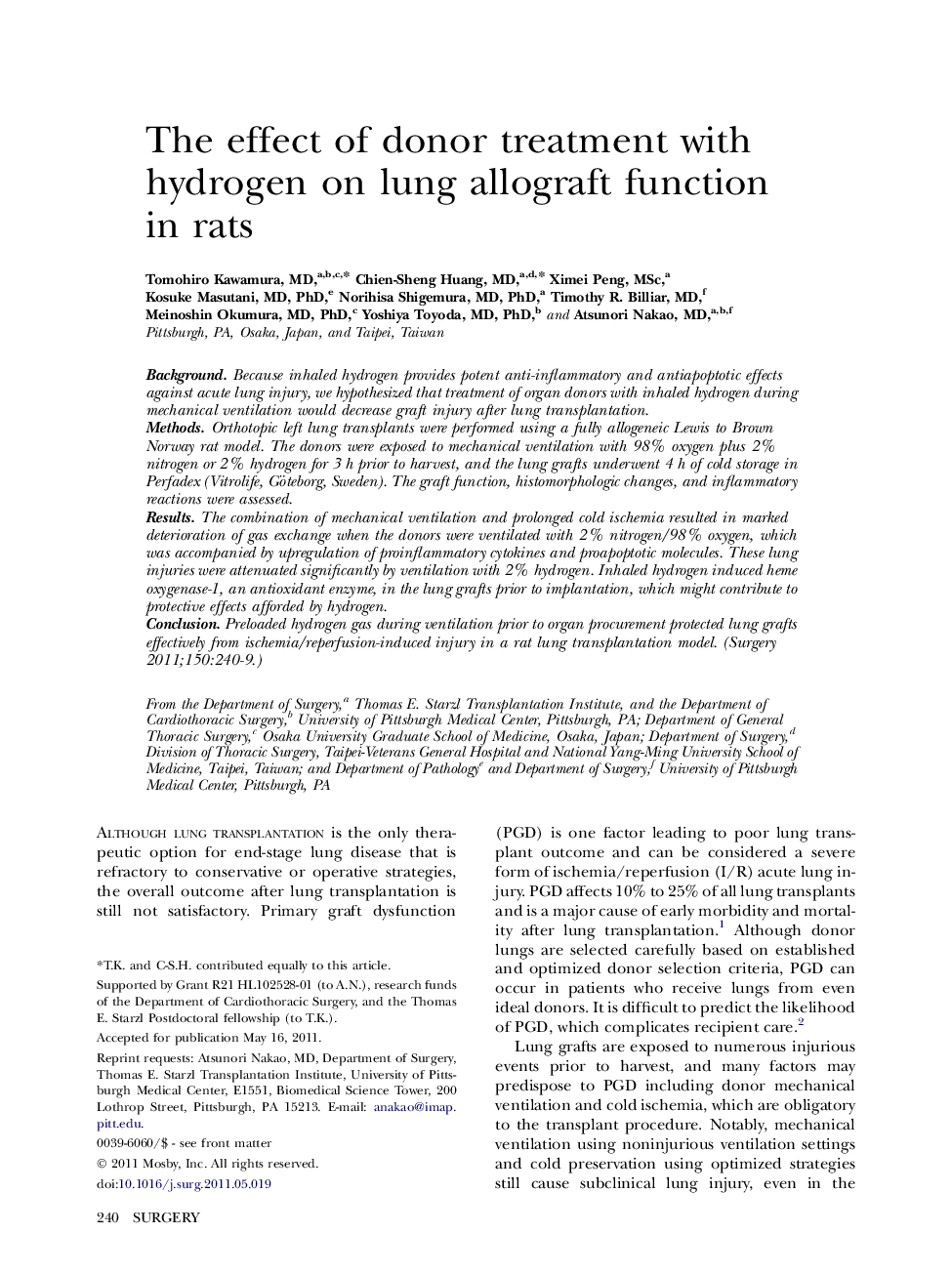| Article ID | Journal | Published Year | Pages | File Type |
|---|---|---|---|---|
| 4308806 | Surgery | 2011 | 10 Pages |
BackgroundBecause inhaled hydrogen provides potent anti-inflammatory and antiapoptotic effects against acute lung injury, we hypothesized that treatment of organ donors with inhaled hydrogen during mechanical ventilation would decrease graft injury after lung transplantation.MethodsOrthotopic left lung transplants were performed using a fully allogeneic Lewis to Brown Norway rat model. The donors were exposed to mechanical ventilation with 98% oxygen plus 2% nitrogen or 2% hydrogen for 3 h prior to harvest, and the lung grafts underwent 4 h of cold storage in Perfadex (Vitrolife, Göteborg, Sweden). The graft function, histomorphologic changes, and inflammatory reactions were assessed.ResultsThe combination of mechanical ventilation and prolonged cold ischemia resulted in marked deterioration of gas exchange when the donors were ventilated with 2% nitrogen/98% oxygen, which was accompanied by upregulation of proinflammatory cytokines and proapoptotic molecules. These lung injuries were attenuated significantly by ventilation with 2% hydrogen. Inhaled hydrogen induced heme oxygenase-1, an antioxidant enzyme, in the lung grafts prior to implantation, which might contribute to protective effects afforded by hydrogen.ConclusionPreloaded hydrogen gas during ventilation prior to organ procurement protected lung grafts effectively from ischemia/reperfusion-induced injury in a rat lung transplantation model.
